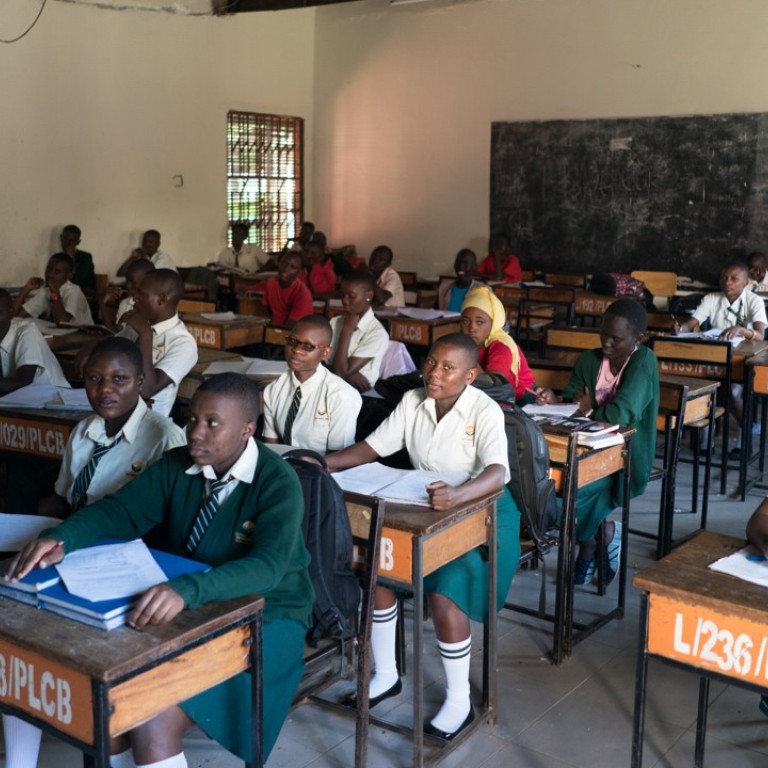
The interracial couple championing China’s soft power in Africa
College run by Ugandan-Chinese couple is training students and educators to speak Chinese, so that they can spread the word about China in Africa
The students at Luyanzi College have little interest in going to Disneyland, riding the London Eye or climbing the Eiffel Tower. Their dream, they say, is to visit the Great Wall.
Teachers at the college, in Uganda’s congested, dusty capital, Kampala, have told them all about China: a beautiful and powerful nation, they have been advised, one of the largest countries in the world, with a mighty economy that will soon leapfrog that of the United States, and a rich history dating back thousands of years.
Investing in Africa is a good fit for China’s long-term plans
“It’s one form of recolonisation,” says Luyanzi director Ayub Sooma, laughing. A Ugandan, Sooma helped start the school in 2010. It is one of the largest private learning institutions in Africa with Mandarin on its curriculum, and students enthusiastically greet him with ni haos as we walk through the school grounds.
One student passes him a football, which he kicks into the air and tries to catch on his knee. Sooma, 57, played a bit when he was younger, and was known, he says, for taking long shots. Now, he and his Beijing-born Chinese wife, Luyanzi headmistress Wang Lihong, 50, are busy fostering “people-to-people friendship” between Uganda and China.
Sooma and Wang met at Beijing’s Tsinghua University in 1990, where he was studying electrical engineering on a scholarship, just a year after the deadly protests at Tiananmen Square. He thought Wang was beautiful, so asked her for her phone number. Wang says she obliged only because, as the well-behaved daughter of high-ranking military officials, she did not know how to say no.
Three years later, she said “Yes”, and they were married.
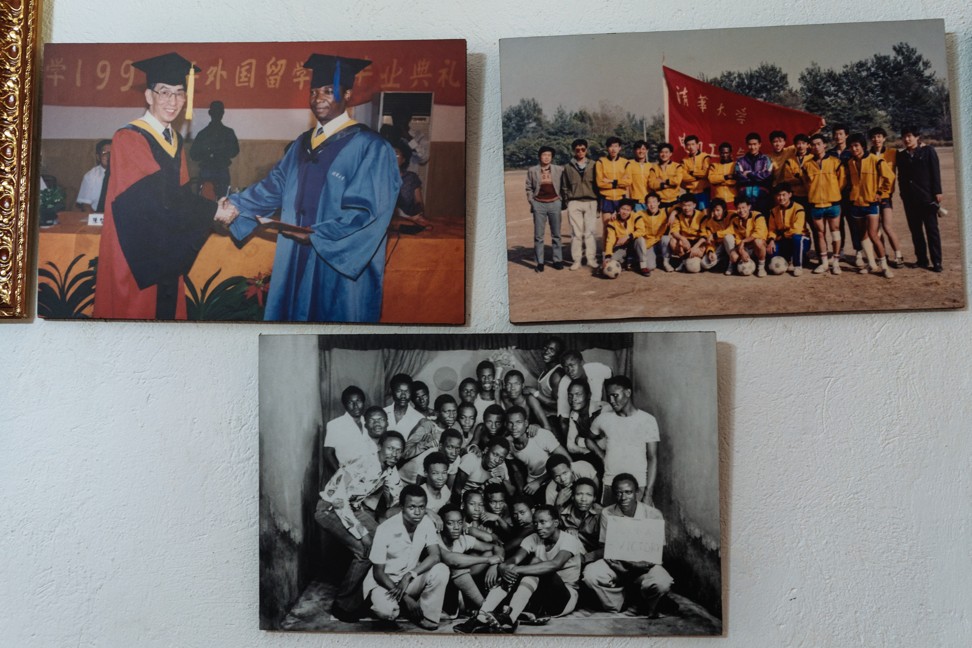
Sooma returned to Uganda in 1994, and Wang followed in 1996. China is Uganda’s largest investor, notes Sooma, and over the past two decades, life has changed dramatically for the couple and their four children, who range from a boy of seven to a 24-year-old daughter, who was born in Beijing. The family home is a mansion in an upscale neighbourhood of Entebbe, the city on Lake Victoria that is home to many of the country’s elite.
God put my heart here. I am African, although I am Chinese.
Sooma believes language has been a cornerstone of his success, and that to reap all the benefits that China has to offer, Ugandans must learn Chinese.
Of the 400 or so students at Luyanzi College, only a handful are the children of Chinese diplomats or businesspeople, who have flocked to Uganda to invest. The majority are children of middle- and upper-class Ugandans willing to pay annual tuition of between 2.4 million and 2.8 million Ugandan shillings (US$627-US$731) – about double the average monthly salary in Kampala – in the belief that Chinese language skills will be key to their children’s future success.
As with many other developing countries, Uganda has received seemingly generous loans from China, in this case amounting to more than US$3 billion over the past decade. For the most part, the money has benefited Chinese companies contracted to build highways, dams, special economic zones and other infrastructure. These projects have generated smaller investments by Chinese nationals who have established restaurants, grocery stores and even market stalls.
Investment by China in Africa wins friends and trust of nations
Sooma, who also heads the Uganda-China Friendship Association and is general manager of Entebbe International Airport, estimates that 10,000 Chinese now live and work in his country. Some experts have put the number as high as 50,000.
Schools such as Luyanzi help further China’s influence in Africa and are a tool of soft power: children are taught not just the language, but also about the way China’s government thinks and would like to be viewed internationally.
“They definitely want to sell their language in order to be on top of the world,” Sooma says, noting that the British and French did the same across Africa during the 19th and 20th centuries. “Likewise, now that China has come out, it must make people learn Chinese. And by learning Chinese, it means that you adapt to them.”
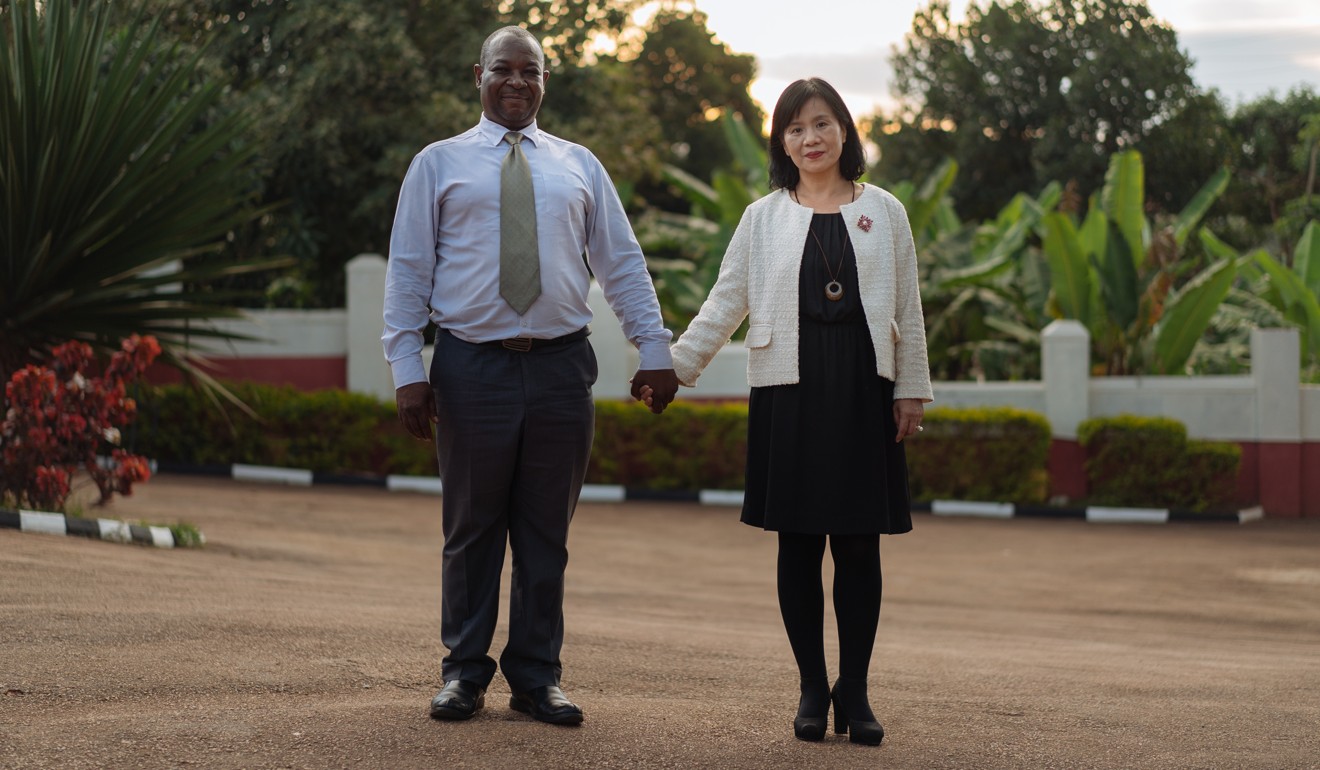
In anticipation, the husband and wife have initiated a three-year trial programme, partly financed through the Confucius Institute, to train Ugandans as Chinese teachers. Four instructors have been flown in from China specifically for the programme. By the end of this year, if all goes to plan, the first batch of 34 teachers will leave Luyanzi, after nine months of intensive training, and return to their secondary schools across Uganda to spread the word and, in this case, the character.
The Hanyu Shuiping Kaoshi (HSK) is the only standardised proficiency testing system for non-native speakers of Chinese. Divided into six levels, students who reach HSK level three should be able to talk about most things they would encounter in daily life in China, while HSK 4 indicates the ability to communicate to a high standard and mastery of at least 1,000 Chinese characters.
At least 100 teachers are expected to acquire HSK 4 skills during the training trial period at Luyanzi. They will then train thousands of students up to HSK level three in their respective schools.
Having local teachers will not only boost the advance of Chinese, says Qian Mingmin, one of the four who has been training the Ugandan educators since March; it could, in the long term, improve trade relations between China and Uganda.
“Before we started, a lot of people told us that [training teachers to such a high standard in so short a time] was an impossible mission, especially other teachers we knew from China,” says the 29-year-old Qian, who studied teaching Chinese as a foreign language at Zhejiang Normal University, in Jinhua, Zhejiang province.
China culture ministry merger in works for overseas soft power push
Qian has also taught students in Tajikistan and the American state of Kentucky (“I saw the oldest KFC in the world”) and says that her grown-up Ugandan students struggle primarily with the same issues as her previous students did: tones and characters.
Studying from 8am to as late as 11pm is necessary to build a firm foundation, says Qian, who instructs her charges to recite Tang-dynasty poems such as Deng Guanque Lou (translated as “Ascending the Stork Tower”) and sing Chinese folk songs to help them memorise words and characters.
It’s been tough on the Ugandan teachers, but when Post Magazine speaks to four of them, following their HSK 3 exams in August, they say they are excited to have been selected.
“We are the drivers of the world,” says Jascent Mutebi, a 34-year-old English language and literature teacher from central Uganda. She says that although pay for a teacher is poor compared with that in other countries, their sense of mission is strong. Many of the group at Luyanzi became teachers because their parents had been educators, and they believe in passing on knowledge for the benefit of the next generation.
“The Chinese really love their culture and they love it when you understand what they’re saying, so I think the more people here who speak Chinese, the more Chinese will come,” says Judith Uwimana, a 24-year-old English-language and literature teacher at a secondary school in Kampala.
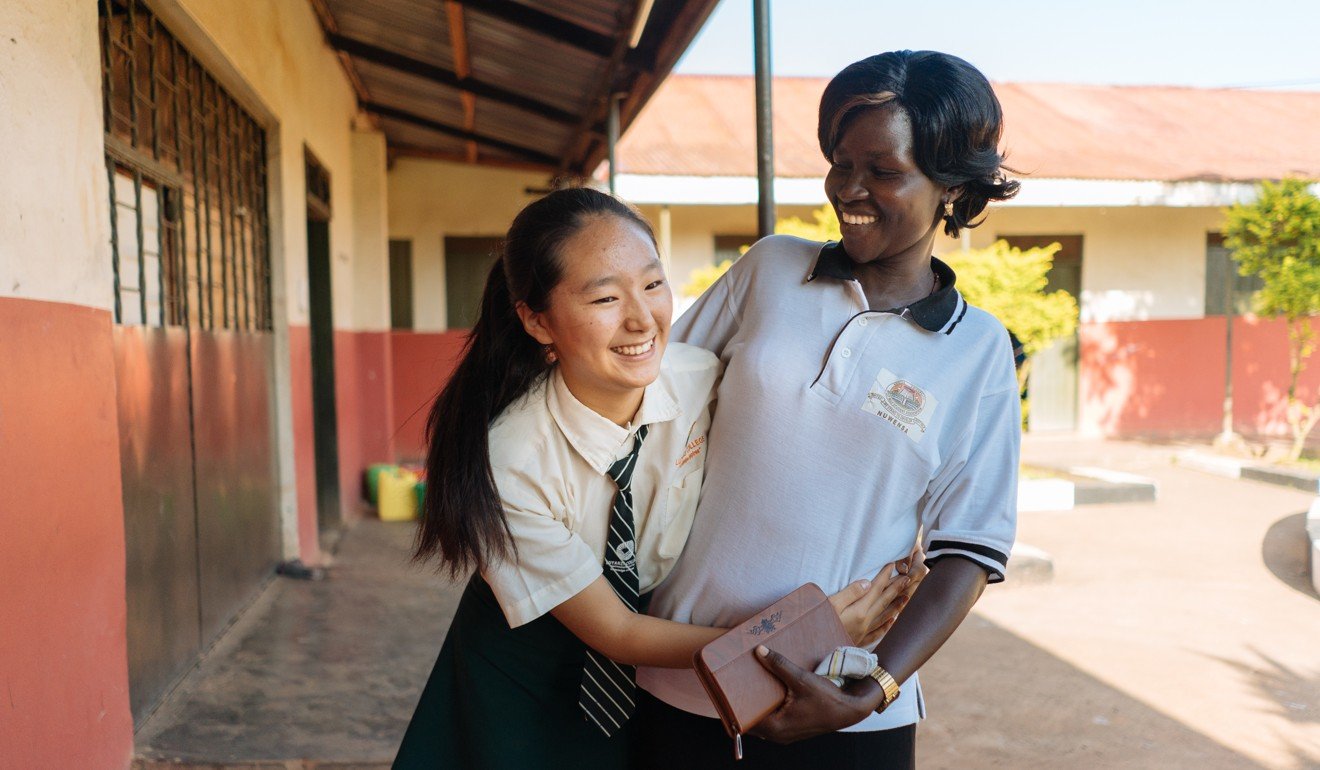
Gordon Mathews, a professor of anthropology at the Chinese University of Hong Kong, says the employment of local teachers is a wise move, because “being a good language teacher is an altogether different thing from being a native speaker of a language. Native speakers aren’t necessarily the best teachers of a language.”
Nevertheless, Mathews expects Chinese to spread slowly in Uganda.
“Someone needs to teach these people something,” says Wang. She is talking about the lack of education and skills she has encountered in Uganda, and how that had a tragic impact on her own life. Ten years ago, she and Sooma’s five-year-old son, she says, fell victim to ignorance. When the boy developed a fever, local doctors were not able to save him. In Beijing, she says, he would have survived.
If Ugandans could speak Chinese, Wang believed, then Chinese businesspeople, engineers and even doctors would be able to pass on their knowledge and skills more easily, which would help the African country develop. It was this belief that drove her into education. Wang had worked as general manager of Sino Africa Medicines and Health, a branch of Tianjin Medicines and Health, which exports drugs from China to Uganda. Luyanzi would now be Wang’s life’s focus.
“According to where I was born and my marriage, I think this is God’s mission,” says Wang, who has embraced her husband’s Muslim faith. “God gave me love so that I can do something for the people here.”
Two hundred years ago, nobody here spoke English. And look at them now. Maybe in a few years, they all speak Chinese
The local education system faces bigger issues than the lack of Chinese teachers, however, and Ian Taylor, a professor in international relations and African political economy at the University of St Andrews in Fife, Scotland, and chair professor at Renmin University of China in Beijing, is sceptical that the language will spread as envisioned.
“Uganda’s education system is crumbling – at every level,” says Taylor, who has been to the country as a visiting scholar and cites a lack of resources, absentee teachers and the fact that the vast majority of children never attend secondary school. “To learn Mandarin [Chinese] takes years and years, and full immersion, and continuous use of it, to keep up the language, is required. This possibility is beyond the overwhelming majority of Ugandans – or Europeans, even – and the time and costs it would involve would be beyond most people.”
Such concerns do not deter Wang, who points to the British colonisation of Uganda, which began in the 1860s.
“Two hundred years ago, nobody here spoke English. And look at them now. Maybe in a few years, they all speak Chinese,” says the headmistress, who now calls Uganda home. “God put my heart here. I am African, although I am Chinese. Uganda is my motherland.”
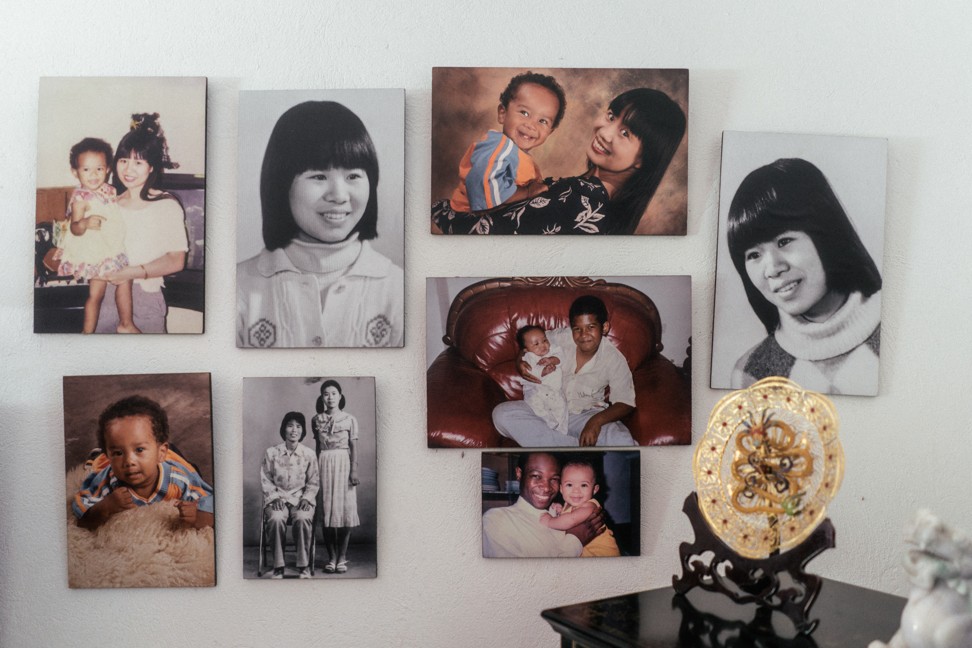
Despite the fact Uganda is in the grip of a wave of violent crime (at least 70 kidnappings were reported across the country in the first five months of this year), Wang says she has never feared for her life while in the country. She has been robbed only once, she says, when she was stuck in traffic with the car window rolled down: an open invitation for a bag snatcher.
“You know, as a lady, you lose a bag, you lose a house,” she jokes. “In China, there is also petty crime, but in China, they use skills to steal. Here, they use energy.”
Nevertheless, if it had been up to Wang, she says, she would not have hired the private guards that protect the couple’s Entebbe mansion, which lies 50km from Luyanzi College. The nation’s president, Yoweri Museveni, who has held power for 32 years, is a neighbour. “They are VIPU – very important person unit,” she says, of the guards, explaining that they are dispatched and paid for by the Ugandan government because of Sooma’s role at the airport.
A warm, animated talker, Wang says she is a confident person who is not deterred easily, which proved essential when moving to Africa. Her parents thought of the continent as a frightening place, riddled with disease, poverty and husbands who beat their wives: not suitable for a well-educated Beijing girl. They had never even heard of Uganda.
Sooma, too, warned Wang about the hardships she would face. “We might have to sleep under a tree,” he had jokingly told her. When she took the leap, with their first-born in tow, she packed a tent. “Nothing shocks my wife,” says Sooma.
‘A grandmother’s love’ inspires Ugandan to open schools for Aids orphans
In their first home, in the town of Jinja, on the northern shore of Lake Victoria, they cooked with charcoal and used jerrycans to fetch water from a well, Wang says, sipping tea she bought on her last business trip to Beijing, poured by a member of her house staff.
The mansion hints at how well connected and wealthy the couple has become. It is full of reminders of China: furniture, vases from a range of dynasties and valuable rugs, one of them a gift from Beijing’s embassy in Uganda, where it once lay in the conference room.
Sooma says that he had the house built in 2004 as a surprise for Wang, fashioning it after a blueprint she had once seen and liked the look of during a trip to Japan. He took a photo of the blueprint without her knowing.
And as Wang confronts stereotypes in China (when asked about children with flies on their face, she argues that charity appeals show only a small part of the Africa story), so the couple face the prejudices of Ugandans. Wang recalls often having been greeted with a chuckled “Chong chong chong”, when local people mimic what she sounds like to them, and Sooma says his family was worried when they first saw his wife because, with her short, skinny build, she looked to them like a child.
Studying Chinese has already given the local teachers at Luyanzi a better understanding of China and its people.
“Time management is very important for the Chinese, but most Africans don’t look at time as something very valuable,” says Mutebi.
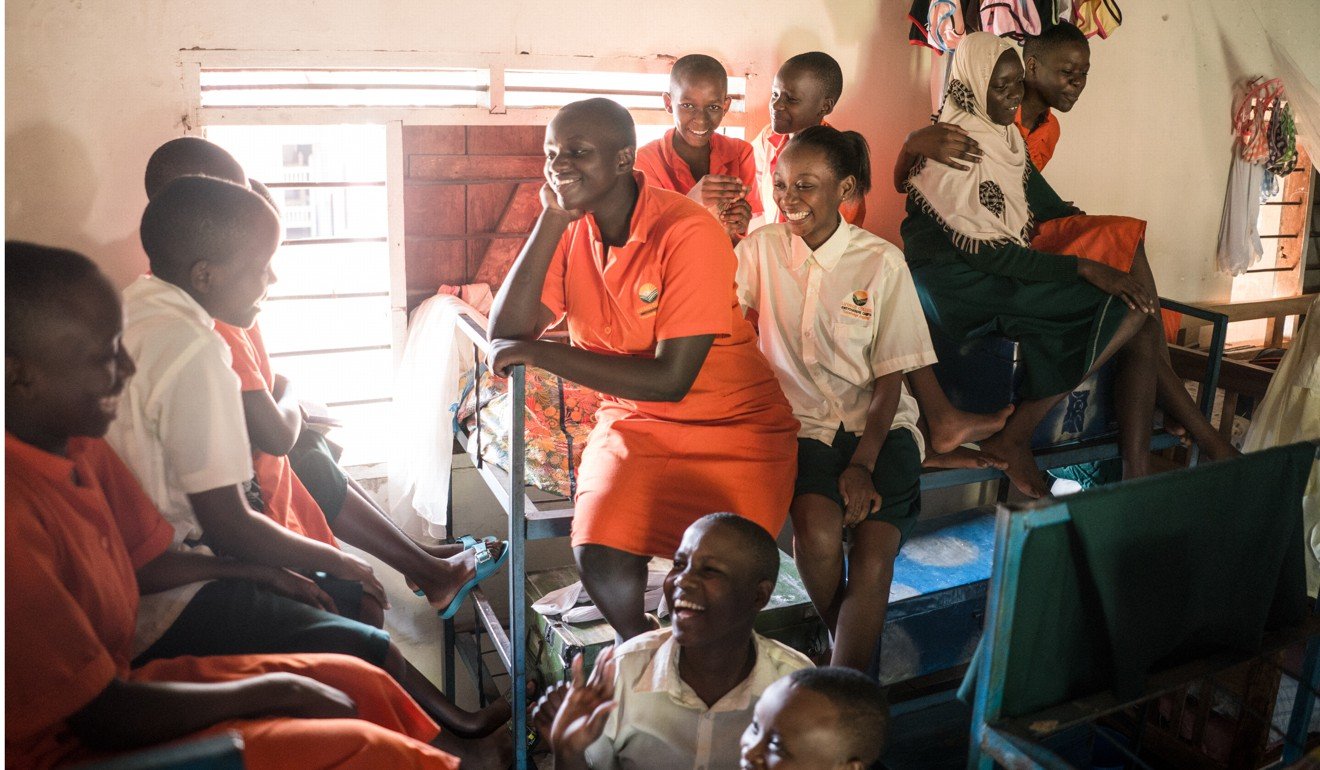
Many Ugandans remain cautious about their nation’s relationship with China, worried about the intentions of what numerous critics describe as the “new colonialists”.
Last year, Ugandan businesspeople marched through Kampala’s streets to protest at what they believe to be unfair competition, asking that the Chinese be barred from small-scale commerce, such as selling shoes. In 2016, officials at the Directorate of Citizenship and Immigration Control complained that Chinese were marrying Ugandans in sham unions, to take the jobs of locals, by, for instance, setting up market stalls or opening small shops.
This year, two dams are expected to go online in Uganda, financed with a US$1.9 billion loan from China. The government has said that it will pay back the loan by selling the electricity generated, but experts have pointed out that Uganda already produces about 50 per cent more power than it consumes, and selling it to neighbouring countries may not be a viable option.
Massive road construction projects have also raised concerns. Quartz online magazine found that 70 per cent of road contracts in the past decade have been given to Chinese contractors, with only 4 per cent being awarded to local companies, according to an analysis of 48 contracts.
Wang and Sooma, however, insist that the Chinese have been well received in Uganda, because of their investments.
“China has always been a friend to Africa,” Sooma says. “So, there is an imbalance in trade,” he says, referring to the fact that although Uganda’s exports to China (raw hides, skins, leather, fruit, grain and seeds, mostly) have almost tripled in the past decade, they still stand at US$30 million, a tiny proportion of the annual US$1 billion in total trade between the two nations. “But this is up to the leaders.”
Hundreds protest in Uganda capital against ‘unfair’ Chinese traders
His wife does not worry too much about trade.
“Education is everything,” says Wang, pointing at a photograph of her husband and other African students at Tsinghua University. “They are all so powerful now.”
Wang says her children have done well because of their upbringing, schooling and hard work – and, of course, their ability to speak several languages, including Chinese. The couple’s first daughter is currently studying law in Britain. Their eldest son will begin studying software engineering at Tsinghua University this year. Unlike his father, he is not in need of a scholarship. Two of their children are still in school in Uganda, and are fluent in English and Chinese.
Wang summons one of her housekeepers, saying she views the young Ugandan woman who emerges from the kitchen as a daughter, and so she has been teaching her Chinese, even though the latter is unlikely to receive the opportunities that Luyanzi’s upper-class students or Wang’s biological children will have to use the language.
Wang asks the young woman to recite a Chinese poem, and shyly she complies.
Reporting for this story was supported by a fellowship from the International Women’s Media Foundation.
